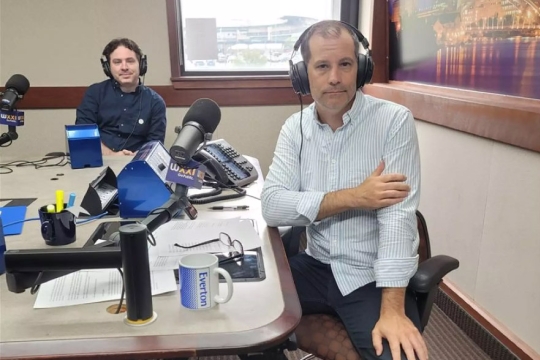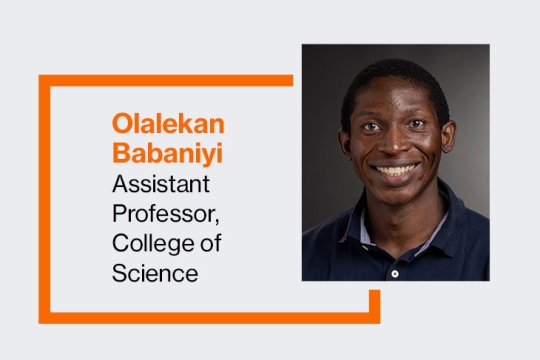
Joshua Faber
School Head
Joshua Faber
School Head
Education
BS, State University of New York at Stony Brook; Ph.D., Massachusetts Institute of Technology
Bio
Dr. Joshua Faber has been a member of the School of Mathematics and Statistics since joining RIT in December 2007, and was appointed to be the Head of the School in the summer of 2022.
He has been a member of the Center for Computational Relativity and Gravitation and a Program Faculty member for the Astrophysical Sciences and Technology Ph.D. programs from their earliest days when he joined the faculty and now serves as a Program Faculty member of the Mathematical Modeling Ph.D. program as well.
Faber has served as the Director and PI of RIT's NSF-funded Research Experiences for Undergraduates program in Multimessenger Astrophysics, whose mission includes providing research opportunities to community college students as well as deaf and hard-of-hearing students. He was recognized as a PI Millionaire by the Office of the Vice President for Research in 2021. From 2020-2022, he served as an Operations Officer and an Executive Committee Member of RIT's Faculty Senate.
Working with Prof. David Goldfarb from the University of Rochester, Faber has been a co-organizer since its founding of the Rochester Science Cafe, one of the city's premier venues for free science talks intended for a general public audience.
He earned his A.A. degree at what was then Simon's Rock College of Bard (now Bard College at Simon's Rock) in Great Barrington, MA, and his B.S. degrees in Physics and Astronomy from the State University of New York at Stony Brook. In 2001, he earned his Ph.D. in Physics from the Massachusetts Institute of Technology, advised by Prof. Frederic Rasio. He worked as a postdoctoral fellow at Northwestern University and the University of Illinois at Urbana-Champaign, the latter including three years sponsored by the NSF Astronomy and Astrophysics Post-doctoral Fellow (AAPF) program.
Select Scholarship
Currently Teaching
In the News
-
October 30, 2024

Saturday Math Academy offers extra help
The program is a supplemental instruction session offered to all RIT students looking for one-on-one help for introductory math courses. The program aims to boost mathematics understanding across campus since all students must take a math course to complete their degrees.
-
May 16, 2023

Joshua Faber on surviving a school shooting
WXXI’s “Connections” program features Joshua Faber, head of the School of Mathematical Sciences.
-
October 17, 2022

RIT researcher developing new mathematical techniques to speed up biomechanical imaging
Assistant Professor Olalekan Babaniyi is developing new mathematical techniques that could lead to improvements in applications ranging from medical imaging to predicting how fast ice flows into the ocean.